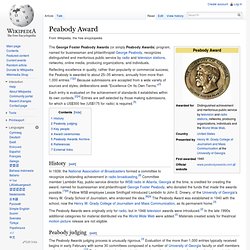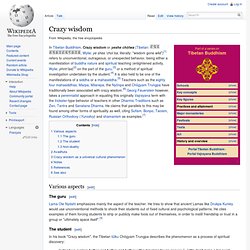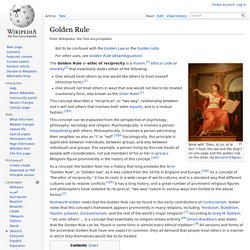

Raghav Bashyal
Sun, clouds, and rainbows!
Music. People. Creative People. The Dancing Boys Of Afghanistan. As the United States deepens its commitment to Afghanistan, FRONTLINE takes viewers inside the war-torn nation to reveal a disturbing practice that is once again flourishing in the country: the organized sexual abuse of adolescent boys.

In The Dancing Boys of Afghanistan, Afghan journalist Najibullah Quraishi (Behind Taliban Lines) returns to his native land to expose an ancient practice that has been brought back by powerful warlords, former military commanders and wealthy businessmen. Known as "bacha bazi" (literal translation: "boy play"), this illegal practice exploits street orphans and poor boys, some as young as 11, whose parents are paid to give over their sons to their new "masters.
" The men dress the boys in women's clothes and train them to sing and dance for the entertainment of themselves and their friends. According to experts, the dancing boys are used sexually by these powerful men. Peabody Award. The George Foster Peabody Awards (or simply Peabody Awards) program, named for businessman and philanthropist George Peabody, recognizes distinguished and meritorious public service by radio and television stations, networks, online media, producing organizations, and individuals.

Reflecting excellence in quality, rather than popularity or commercial success, the Peabody is awarded to about 25–35 winners; annually from more than 1,000 entries.[1][2] Because submissions are accepted from a wide variety of sources and styles, deliberations seek "Excellence On Its Own Terms. "[3] Each entry is evaluated on the achievement of standards it establishes within its own contexts.[2][4] Entries are self-selected by those making submissions, for which a US$300 fee (US$175 for radio) is required.[5] History[edit] Peabody judging[edit]
HackerspaceWiki. Hackerspaces are community-operated physical places, where people can meet and work on their projects.

This website is for Anyone and Everyone who wants to share their hackerspace stories and questions with the global hackerspaces community. Regular Events Call-in - Call-ins provide an opportunity for existing hackerspaces to provide an update and highlight upcoming events, and new/planned hackerspaces can ask questions. First Sunday each month. Synchronous Hackathon - Hackerspaces worldwide use the internet to interact and hack for the weekend. Resources Hackerspaces Blog: The Hackerspaces blog showcasing interesting projects and events around the world at hackerspaces. Gay or not. Is coming out passé? The gay trucker and other misfits It’s not just the fear of losing a job, or losing family that stops people from coming out. Steve Kornacki the news editor of Salon.com had no reason not to be out. He worked for a liberal media publication.
He didn’t come from some rabidly religious homophobic family. He lived in Manhattan. It’s easy to dismiss him as a “self-hating homosexual” but gay activist Aditya Bondyopadhyay says he can totally empathize. He says the gay community often doesn’t have space for people like him. This is not to suggest coming out is meaningless. Freethought. For the Ukrainian language newspaper published in Australia, see The Free Thought.

Freethought or free thought is a philosophical viewpoint which holds that positions regarding truth should be formed on the basis of logic, reason, and empiricism, rather than authority, tradition, or other dogmas.[1][2][3] The cognitive application of freethought is known as "freethinking", and practitioners of freethought are known as "freethinkers".[1][4] Freethought holds that individuals should not accept ideas proposed as truth without recourse to knowledge and reason. Mainstream vs. Cult: The Case For Success Incubators. Image courtesy of Warner Bros.

This post is about movies, but it isn’t. Just bear with me. What movies can teach us about mass market products vs. game-changers.
Dan Gilbert asks, Why are we happy? Occupy. Crazy wisdom. In Tibetan Buddhism, Crazy wisdom or yeshe chölwa (Tibetan: ཡེ་ཤེས་འཆོལ་བ, Wylie: ye shes 'chol ba, literally: "wisdom gone wild")[1] refers to unconventional, outrageous, or unexpected behavior, being either a manifestation of buddha nature and spiritual teaching (enlightened activity, Wylie: phrin'las)[2] on the part of the guru,[3] or a method of spiritual investigation undertaken by the student.[4] It is also held to be one of the manifestations of a siddha or a mahasiddha.[5] Teachers such as the eighty four mahasiddhas, Marpa, Milarepa, the Nyönpa and Chögyam Trungpa have traditionally been associated with crazy wisdom.[6] Georg Feuerstein however, takes a perennialist approach in equating this originally Vajrayana term with the trickster-type behavior of teachers in other Dharmic Traditions such as Zen, Tantra and Sanatana Dharma.

Various aspects[edit] The guru[edit] Lama Ole Nydahl emphasizes mainly the aspect of the teacher. The student[edit] Non-duality[edit] Avadhuta[edit]
The Golden Rule. Book with "Dieu, la Loi, et le Roi" ("God, the law and the king") on one page and the golden rule on the other, by Bernard d'Agesci.

Creativity. Games. Cinema. Design. Photography. Pearltrees videos. Help.